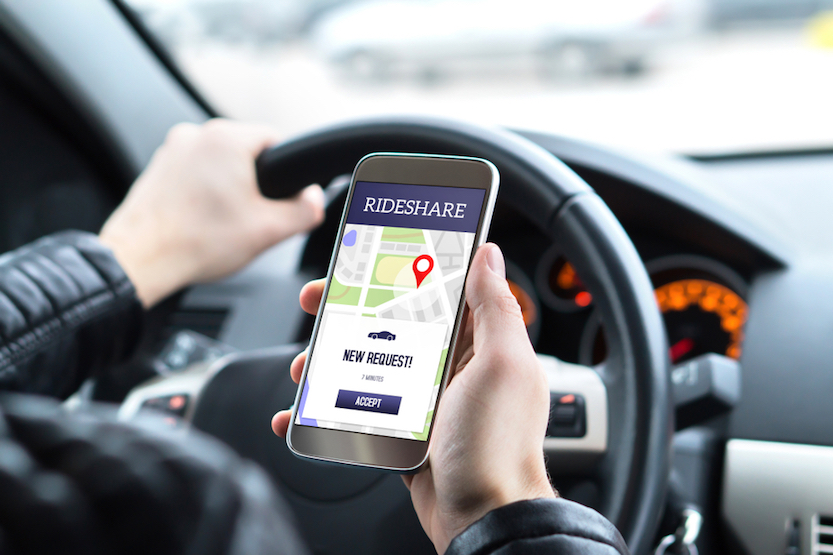



Get new exclusive access to healthcare business reports & breaking news




With an estimated 3.6 million Americans missing medical appointments annually due to lack of reliable transportation, ride hailing service firm Lyft has been working on consolidating its partnerships with medical service providers, as it targets reducing this number by half by 2020.
Lyft said insights from its “Economic Impact Report” showed that there was a growing demand for non-emergency medical transportation (NEMT). In view of that, the company is working on consolidating its position in offering transportation to medical appointments.
“One of the key social determinants of health is access to services and programs that promote health and wellbeing. Transportation is the key to unlocking that access — and ridesharing is the most cost effective, reliable, safe, and convenient option,” Lyft said in a blogpost.
In the latest deal, Lyft said it was expanding its collaboration with Human and the Blue Cross Blue Shield Institute, a subsidiary and independent licensee of the Blue Cross and Blue Shield Association (BCBSA) through its work with Logisticare to service patients on Medicare Advantage (MA) plans.
John Zimmer, co-founder and president of Lyft, said his company was working “closely with health care providers to get more people to the doctor when they need it, and a partnership this size with BCBS allows us to reach all 50 states. This type of cross-industry partnership is a critical way to help make our communities stronger and families healthier.”
BCBSA said the nationwide partnership with Lyft exemplified its commitment to bringing private and public entities together to improve community health in a manner that a healthcare organization could not address on its own.
“By combining BCBS’s ability to study the health experiences of its 106 million members with local data on issues such as transportation, nutrition and the environment, these partnerships can focus at a ZIP code-level on the community factors that have the most dramatic impact on individual health,” BCBSA said in a statement.
Trent Haywood, BCBSA chief medical officer and president of the BCBS Institute, said they were committed to local communities and to solving the most pressing health care challenges and a strategic alliance “with Lyft will allow us to positively impact and improve Americans’ health nationwide.”
Haywood explained that there were many Americans who lived in areas where medical care is beyond the reach of walking, biking or public transportation. Because of this, they miss out on access to critical health.
BCBSA said that over the next several months, they will “incorporate Lyft services into an innovative service delivery model for select Blue Cross and Blue Shield companies – at no cost to members. The model couples BCBS technology with Lyft’s convenient ride-share services to reduce the number of missed appointments for non-emergency medical care in areas without optimal transportation alternatives servicing health care facilities.”
Under the terms of the agreement, patients can schedule a ride through their Blue Cross plan at no cost. A ride will then be booked through Lyft’s concierge service platform that focuses on giving senior citizens rides to medical appointments.
Humana’s Retail Segment president, Alan Wheatley, explained their approach to the agreement by saying health was not just about being at the doctor’s offices, but rather, there were other social determinants that could affect a patient’s well-being, like transport.
“Our goal in working with LogistiCare and Lyft is to innovate in ways that translate directly into improved health and a better healthcare experience for the Medicare Advantage members we serve,” he said.
Lyft’s decision to expand its NEMT collaborations has somewhat been driven by a decision by the Centers for Medicare & Medicaid Services (CMS) in April 2018 to allow more flexibility for MA plans to innovate with services that promote member health and wellness.
“Beginning in the 2019 plan year, MA plans have an even broader canvas for addressing social determinants of health, primarily through new flexibilities in benefit design that allow innovative payers to broaden the scope of services to include transportation,” Lyft explained.
Lyft and BCBSA have been working together since 2017.
Last November Lyft and Call9, a telehealth startup that specializes in care performed in nursing homes, announced a partnership to provide transport services for family members of patients in the former’s facilities.
Lyft already has a partnerships with CareMore Health, a division of Anthem and Hackensack Meridian Health and last year it announced that it was working with American Medical Response (AMR) and its business unit Access2Care (A2C) to offer alternative transportation options for routine medical care to thousands of Medicare and Medicaid beneficiaries.
The ride hailing service company estimates that the number of missed and unused appointments alone are a $150 billion burden on the U.S. healthcare system and projects that the number is likely to rise as America’s aging population grows.